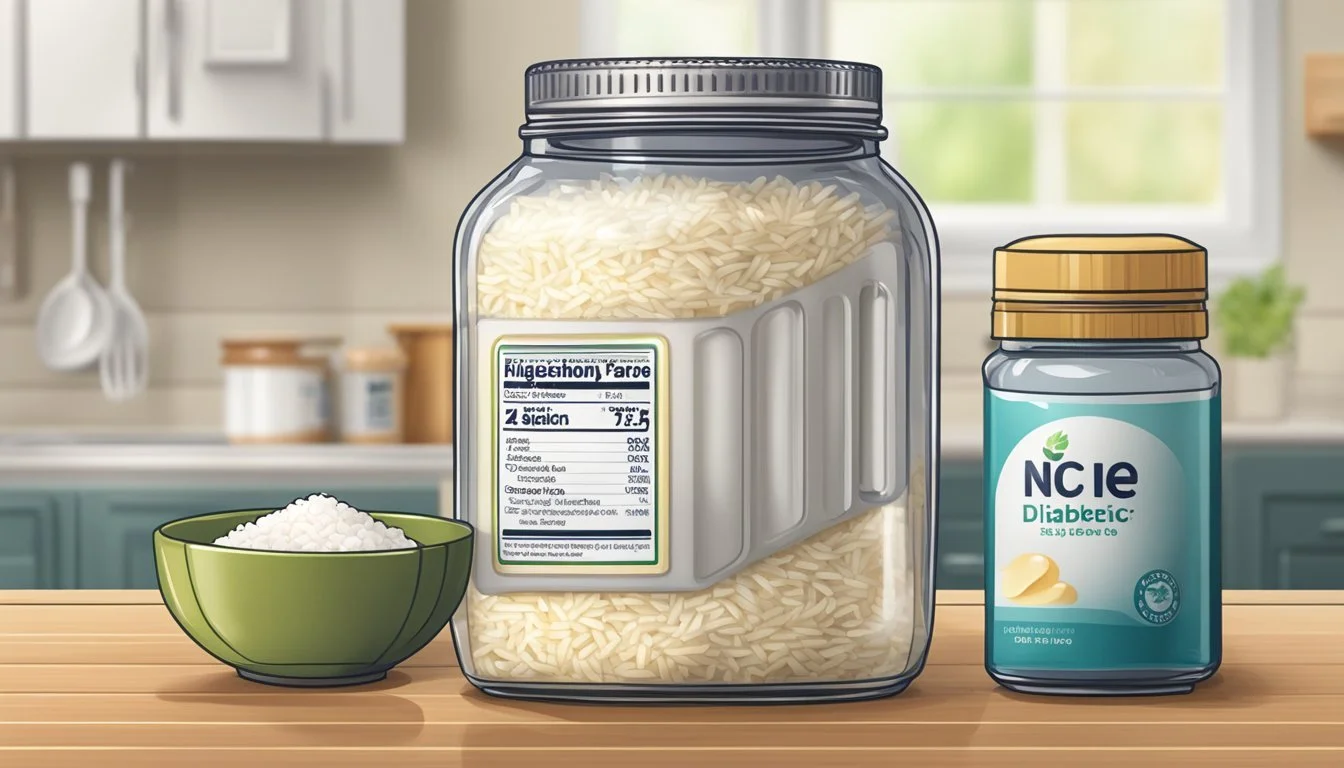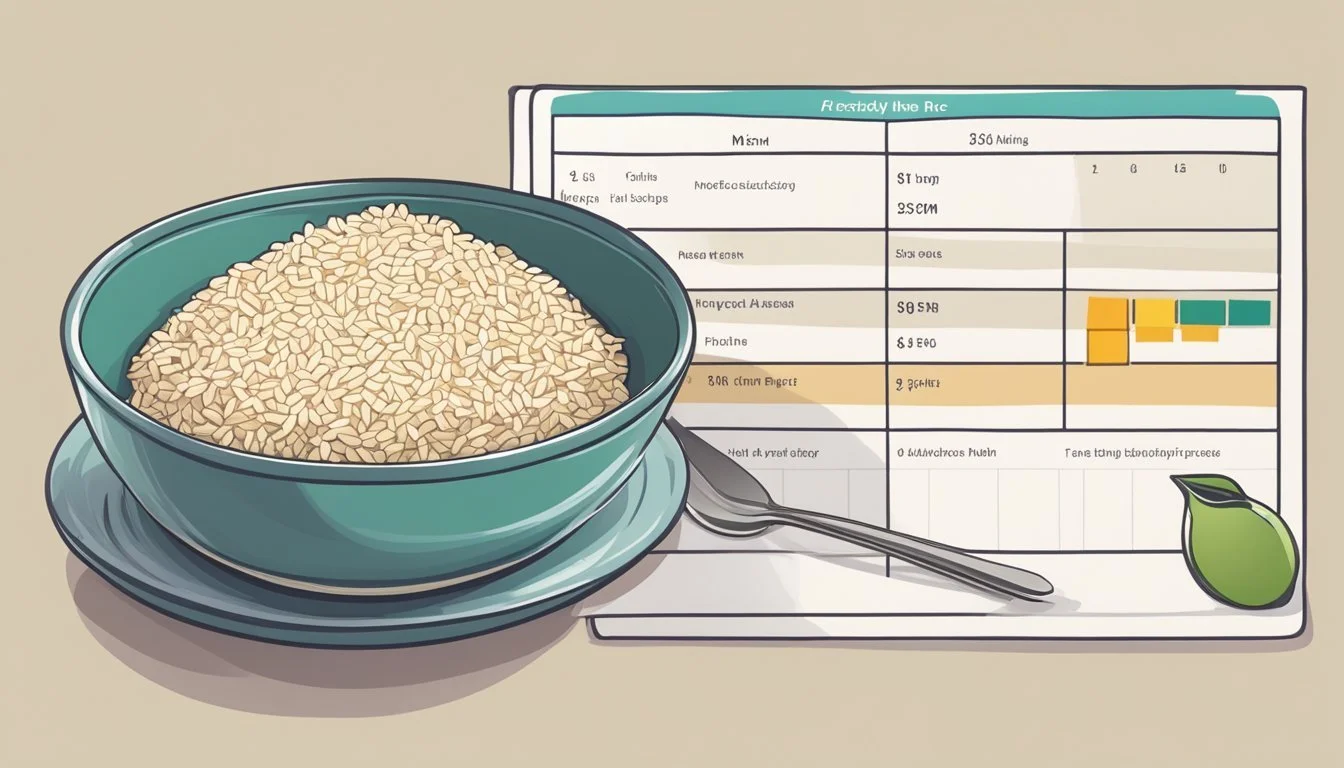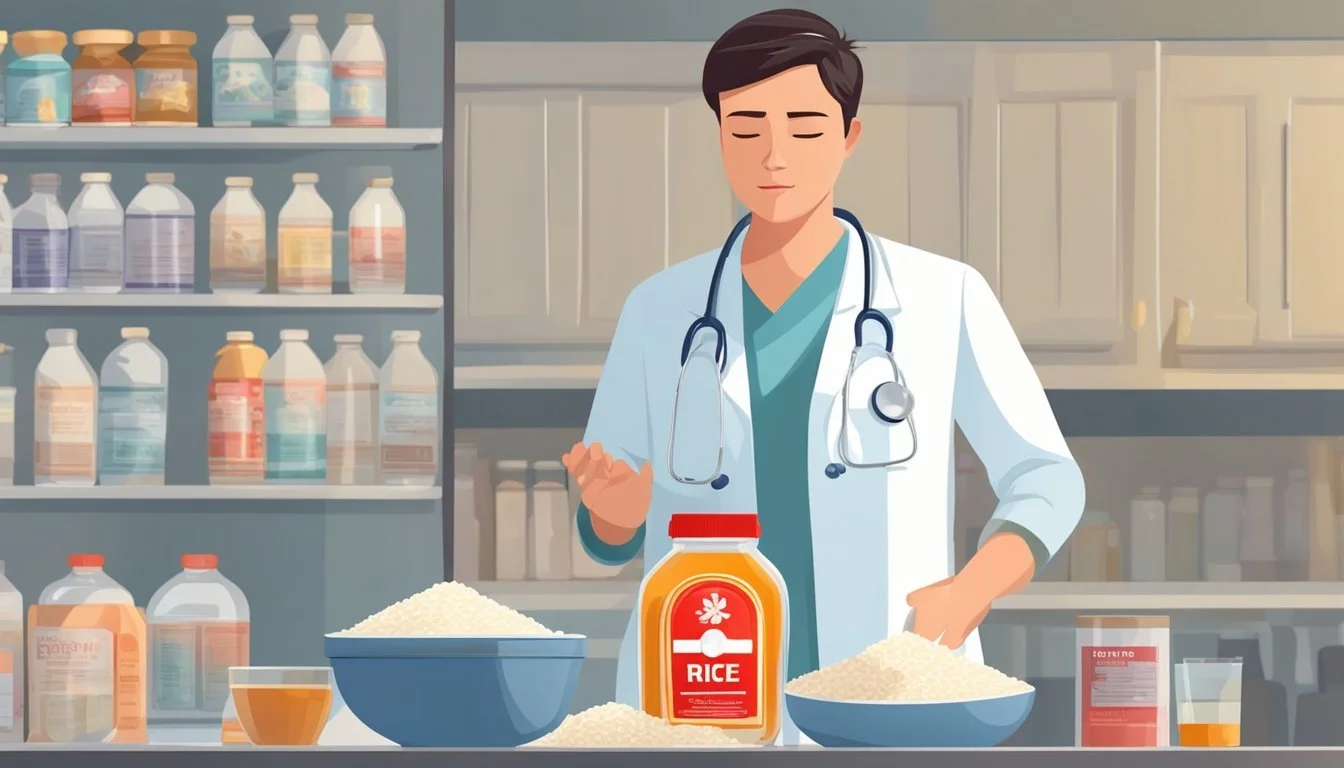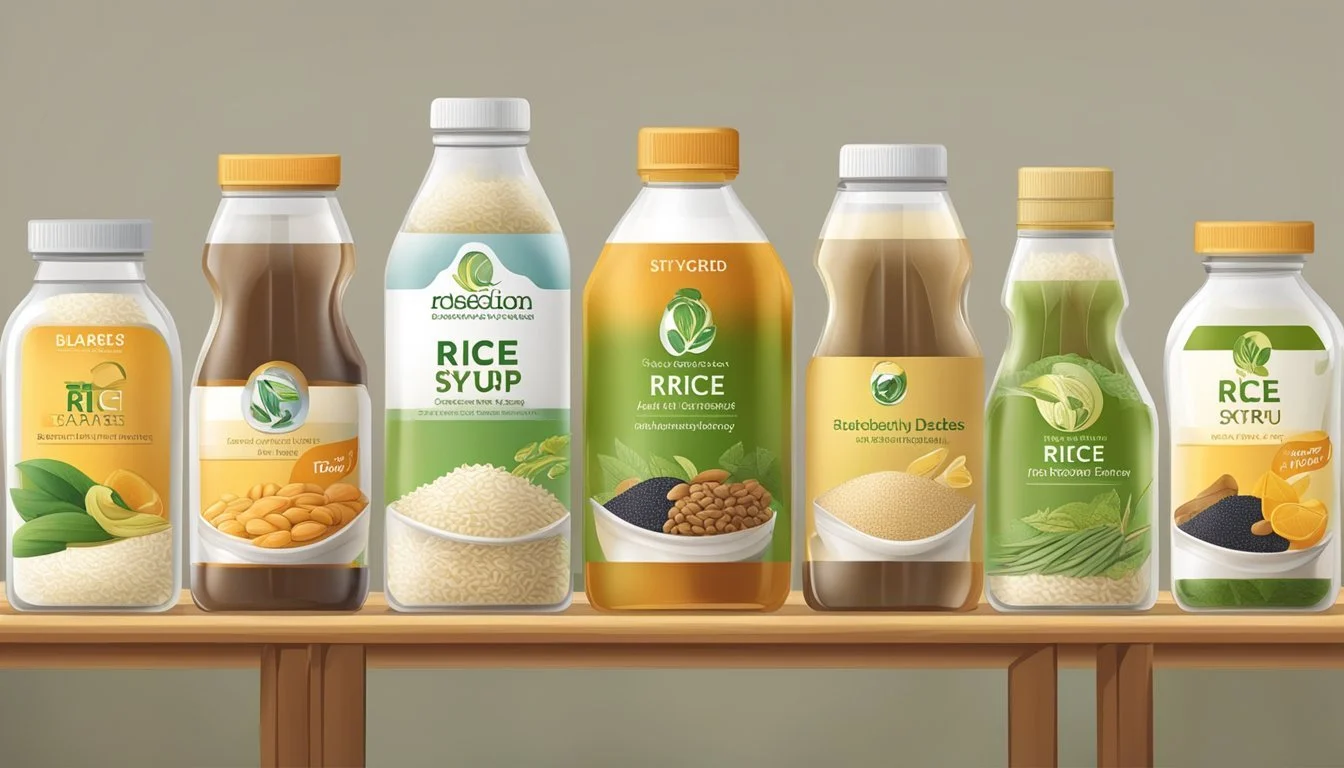Can Diabetics Have Rice Syrup?
Understanding Its Impact on Blood Sugar Levels
When considering sweeteners for a diabetes-friendly diet, the impact on blood sugar levels is a fundamental concern. Rice syrup, a sweetener derived from brown rice (What wine goes well with rice?), consists of glucose molecules and possesses a high glycemic index, meaning it can cause a rapid increase in blood sugar levels post-consumption. This characteristic of rice syrup makes it a significant point of consideration for individuals managing diabetes, a condition characterized by elevated blood glucose levels and the body's impaired ability to regulate them.
While rice syrup is sometimes perceived as a 'healthier' alternative to refined sugar due to its source, the reality for diabetics is that its effect on blood sugar can be similar or even more pronounced than that of regular table sugar. Blood sugar management is critical in a diabetic diet to prevent complications associated with the condition. Nutritionally, rice syrup offers very little beyond its sweetness, lacking the vitamins, fibers, and minerals that could contribute to a balanced diet.
Therefore, for those managing diabetes, incorporating rice syrup into their diet requires careful consideration and moderation. It is crucial to evaluate the nutritional content of sweeteners and understand how they fit into the broader scope of a healthy diet aimed at maintaining stable blood sugar levels. The choice to consume rice syrup, like other sweeteners, should be informed by its glycemic index and the individual's overall meal plan and health goals.
Basics of Diabetes and Diet
Managing diet is pivotal in controlling diabetes, a condition characteristically marked by abnormal blood sugar levels. An understanding of the relationship between food intake, specifically carbohydrates, and blood glucose levels is critical for diabetics to maintain their health.
Understanding Diabetes
Diabetes is a chronic disease where the body either cannot produce enough insulin or cannot effectively use the insulin it produces. Insulin is a hormone that regulates blood sugar. Elevated levels of blood glucose, or hyperglycemia, are a common effect of uncontrolled diabetes and can lead to serious health problems over time, including type 2 diabetes. There are distinct types of diabetes, but type 2 diabetes comprises the majority of cases, often associated with lifestyle factors, including diet.
Dietary Guidelines for Diabetics
Nutrition plays a significant role in the simultaneous management and progression of diabetes. Diabetics are advised to monitor carbohydrate intake since it has the most immediate effect on blood sugar levels. The glycemic index (GI) is a tool that measures how food affects blood glucose levels. Foods with a high GI increase blood sugar levels rapidly, requiring more insulin for glucose absorption.
Type of Carbohydrates: It's essential to choose foods with a low to moderate glycemic index to prevent spikes in blood glucose levels.
Fiber Intake: Foods high in fiber have a lower GI and help regulate blood sugar levels by slowing down the digestion process.
Portion Control: Managing portion sizes helps control calorie intake and can contribute to a balanced blood sugar level.
Following these dietary guidelines can help individuals with diabetes manage their condition more effectively through careful nutrition and diet planning.
Rice Syrup and Its Components
Rice syrup is a sweetener that significantly impacts blood glucose levels due to its high carbohydrate content. It is crucial for diabetics to understand its composition and how it might affect their blood sugar management.
What Is Rice Syrup?
Rice syrup, often made from brown rice, is a liquid sweetener used in various culinary applications. Manufacturers produce it by exposing cooked rice to enzymes that break down starches and subsequently converting these starches into simpler sugars, primarily maltose and a smaller amount of glucose.
Nutrient Composition of Rice Syrup
The nutrient profile of rice syrup comprises mostly carbohydrates, with a negligible amount of proteins and fats. Here is a basic breakdown of its composition per 100 grams:
Calories: 311 kcal
Proteins: 0.5 grams
Carbohydrates: 77.0 grams
Sugars: Mostly maltose with smaller amounts of glucose
Fats: 0.2 grams
Given its high carbohydrate content, rice syrup has a high glycemic load, indicating its potential to raise blood sugar levels quickly. While brown rice syrup contains some nutrients because of its source, the primary concern for diabetics is its effect on blood sugar regulation due to the predominant carbohydrate content.
Glycemic Index of Rice Syrup
Rice syrup, often derived from brown or white rice, is regarded as a natural sweetener and is used as an alternative to table sugar. The glycemic index (GI) is a crucial measuring scale used to gauge how carbohydrates affect blood glucose levels. Rice syrup has a notably high GI, with sources indicating a GI value of as high as 98. This rating places it well above table sugar, which typically has a GI between 60 to 70.
The implications for individuals watching their blood sugar, especially diabetics, are significant. Foods with a high GI such as rice syrup can cause a rapid elevation in blood glucose. This swift increase requires the body to respond quickly to manage glucose levels, which can be a concern for those with impaired insulin responses.
To understand the impact of rice syrup on one's health, one should consider the GI alongside other nutritional information such as carbohydrate content. Despite its natural origins, rice syrup presents a similar challenge to blood sugar management as do other high-GI foods, which might pose health risks over time when incorporated regularly in a diet.
Utilizing rice syrup in moderation or opting for lower GI alternatives can be better options for those aiming to maintain stable blood glucose levels. Health professionals typically recommend foods with a low to moderate GI for individuals with diabetes or those seeking to manage their blood sugar more effectively.
Comparing Rice Syrup to Other Sweeteners
When evaluating sweeteners for diabetic diets, rice syrup and sugar are commonly discussed options. This section discusses rice syrup in comparison to sugar and explores healthier alternatives.
Rice Syrup vs. Sugar
Rice Syrup, also known as rice malt syrup, is a sweetener derived from fermented cooked rice. It has a high glycemic index (GI) of 98, meaning it can rapidly increase blood glucose levels. Sugar, on the other hand, typically has a GI of 60-70. While sugar also raises blood glucose quickly, rice syrup does so to a much greater extent. Furthermore, sugar contains 50% fructose and 50% glucose.
Sweetener Glycemic Index (GI) Fructose Content Rice Syrup 98 0% Sugar (Sucrose) 60-70 50%
Healthier Alternatives to Rice Syrup
For those managing diabetes, it is crucial to select sweeteners that help maintain stable blood sugar levels. Honey, although natural, still has a relatively high GI and is composed of around 40% fructose. Sweeteners like stevia, erythritol, and monk fruit have minimal impact on blood glucose levels, making them more suitable alternatives. These sweeteners have either zero or very low caloric content and glycemic index ratings, with negligible amounts of added sugars, if any.
Sweetener Glycemic Index (GI) Notes Honey 58 Natural, higher in fructose Stevia 0 No calories, does not raise blood sugar Erythritol 1 Sugar alcohol, low calorie Monk Fruit 0 Natural, no calories, no added sugar
Impact of Rice Syrup on Blood Sugar Levels
Rice syrup, often manufactured from brown rice, contains complex carbohydrates that break down into simple sugars. Individuals with diabetes should approach rice syrup cautiously, as it impacts blood sugar levels.
Glycemic Index (GI): Rice syrup has a GI of approximately 65, indicating a moderate effect on blood glucose levels. However, it's important to note that this is still lower than pure glucose, which has a GI of 100, but higher than table sugar with a typical GI around 60-70.
Blood Glucose Levels: Upon consumption, rice syrup's sugars are absorbed into the bloodstream, necessitating insulin response to normalize blood glucose. In diabetics, where insulin function is compromised, rice syrup can cause a considerable rise in blood sugar levels shortly after ingestion.
Insulin Response: As blood glucose levels rise, the body's need for insulin increases. Diabetics, especially those with Type 2 diabetes, often experience insulin resistance, which can be exacerbated by high-GI foods like rice syrup.
Glycemic Load (GL): The concept of GL takes into account both the quality (GI) and quantity of carbohydrates in a food item. Although the GI of rice syrup suggests a moderate impact, consuming it in large amounts can result in a high GL, leading to significant increases in blood sugar levels.
Consideration for Diabetics: The American Diabetes Association recommends focusing on the overall pattern of healthy eating and monitoring total carbohydrate intake. Given its potential impact, diabetics should use rice syrup judiciously and factor its consumption into their comprehensive dietary management plan.
Recommended Intake and Portion Size
Individuals with diabetes need to manage their carbohydrate intake to maintain optimal blood sugar levels. Rice syrup, a sweetener with a high glycemic index, should be consumed with caution to avoid blood sugar spikes.
Determining Appropriate Portion Size
Portion size for any sweetener is critical, especially for diabetics. Rice syrup, being a concentrated source of sugar, should ideally be limited or avoided. If included in a meal plan, a dietician may recommend a very small portion, such as a teaspoon, which must be counted within the daily carbohydrate allowance. The total amount of carbohydrates for a single meal varies among individuals, but a general guideline is between 45-60 grams of carbohydrates.
Rice Syrup: 1 teaspoon (considered within daily carbohydrate limits)
Health professionals typically suggest more complex carbohydrates with fiber, which have a lower glycemic index, over simple sugars like those found in rice syrup.
Monitoring Blood Sugar Response
Monitoring how blood sugar responds to rice syrup is crucial. Each individual has a unique response to different types of carbohydrates. Using a blood glucose meter can help one understand how their body reacts to rice syrup. For those who choose to include rice syrup in their diet, monitoring should be done:
Before consuming rice syrup: To have a baseline blood sugar level
After consuming rice syrup: Typically 2 hours post-ingestion to see the glycemic response
By consistent and careful monitoring, a person with diabetes can understand if the portion size of rice syrup is appropriate for their body's blood sugar management or if adjustments are needed. Frequent spikes in blood sugar levels post-consumption may indicate the need for stricter control or the elimination of rice syrup from the diet.
Health Concerns Related to Rice Syrup
Rice syrup, often regarded as a healthier alternative to refined sugar, poses several health concerns. Its impact on blood glucose levels, potential contribution to obesity and heart disease, and the presence of arsenic are noteworthy considerations for consumers, especially those with diabetes.
Obesity and Rice Syrup Consumption
Rice syrup contains high levels of glucose and maltose, contributing to its high caloric content. Regular consumption of high-calorie foods can lead to an imbalance in energy intake, potentially resulting in obesity. Obesity itself is a risk factor for type 2 diabetes and other metabolic disorders.
Rice Syrup and the Risk of Heart Disease
The glycemic index (GI) of rice syrup is high, which means it can cause a rapid increase in blood sugar levels. Consistently raised blood glucose can exert stress on the cardiovascular system, potentially increasing the risk of heart disease.
Arsenic Content in Rice Syrup
Rice and rice products have been found to contain arsenic, a toxic substance. Chronic arsenic exposure, even at low levels, is associated with an increased risk of cancer and other health complications. Therefore, regular intake of rice syrup might lead to arsenic accumulation in the body, posing long-term health risks.
Dietary Alternatives to Rice Syrup
For individuals with diabetes, managing blood sugar levels is crucial. Seeking alternatives to rice syrup, which can cause blood sugar spikes, is essential in maintaining dietary balance.
Selecting Whole Foods Over Processed Sweeteners
When it comes to maintaining a stable glycemic response, whole foods take precedence over processed sweeteners. Whole grains, for example, release glucose more slowly into the bloodstream due to their high fiber content. Diabetics are often encouraged to replace high glycemic index sweeteners like rice syrup with natural, less processed alternatives. Foods like quinoa, oats, and barley not only provide the requisite sweetness but also come packed with nutrients and fibers that aid in glucose regulation.
Incorporating Natural Sugars Through Fruits
Fruits are a natural source of sugar and offer an array of beneficial compounds such as vitamins, antioxidants, and fiber, making them a healthier sweetener option for diabetics. The fiber in fruits slows down the digestion and absorption of sugar, helping to avoid sharp increases in blood sugar levels. Some fruits that are particularly low on the glycemic index include:
Apples
Berries (strawberries, blueberries, raspberries)
Pears
Oranges
These fruits can be added to meals or used in recipes as a sweetening agent to replace rice syrup, providing a sweeter flavor along with a host of healthful benefits.
Conclusion
Those managing diabetes need to be mindful of their sweetener choices, and this includes the consumption of rice syrup. Rice syrup, particularly brown rice syrup, has a high glycemic index (GI) and can cause significant spikes in blood glucose levels. Registered dietitians often provide dietary advice aiming for the maintenance of steady blood glucose levels in the interest of optimal diabetes management. Consequently, they may advise against using brown rice syrup as a sweetener.
In contrast to white rice, brown rice contains more nutrients, such as proteins, lipids, vitamins, minerals, and dietary fiber, which can offer health benefits; however, the derivatives, like brown rice syrup, do not have the same effect. The occasional use of brown rice syrup in small quantities might be acceptable, but this should be discussed with a health professional to tailor individual dietary advice.
It is critical to consider the overall dietary pattern rather than focusing on a single food item. Incorporating a variety of nutrient-dense foods and adhering to a meal plan developed with a healthcare provider or registered dietitian can contribute to more effective health and diabetes management. Every individual's response to different types of carbohydrates can vary; therefore, monitoring blood glucose levels is essential when incorporating new food items into a diet.
Using lower glycemic index alternatives, such as certain fruit sweeteners, stevia, or artificial sweeteners, might be more appropriate for those with diabetes, though these options should also be evaluated by health professionals within the context of the individual's overall diet and health goals.









